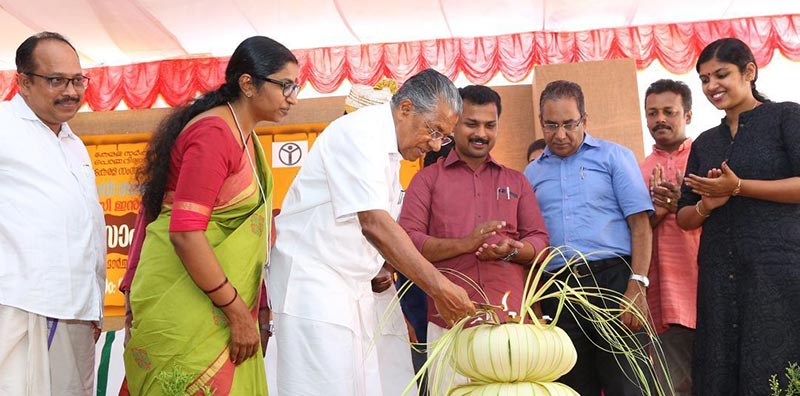KSLMA ropes in tribes as instructors for literacy drive
Chief minister Pinarayi Vijayan inaugurating social literacy training for tribe instructors
At a time when social development of the tribal population still a cause of worry, Keala state literacy mission authority impacted a change in their lives through a comprehensive literacy programme. Instead of appointing outsiders as teachers, tribes, with minimum qualifications, roped as instructors after given them expert training. The trained persons would pay the role of instructors under the kerala state literacy mission in their respective settlements and impart training to their fellow people there.
As many as 370 tribal instructors, including those handpicked from 100 most educatonally- backward hamlets across the state took part in the social literacy training programme held in thiruvananthapuram. The instructors, deployed in Attapadi in palakkad district and settlements in Wayanad be among participants for the training.
Chief minister pinarayi vijayan inaugurated the two-day drive here at a function on march 24, 2018.
It is for the first time in the history of the state education sector that tribals themselves have been roped in as instructors to bring their fellow beings under the governments literacy programme.
During the two-day training programme, the selected instructors took part in group discussions on 17 topics, including law, school education, higher education, health, environment, gender equality, agriculture, labour, media, cinema, literature, secularism, development, housing, food, industry and democracy.
Call to bring tribals into mainstream
The dangers posed by substance abuse and low literacy among tribal communities, the environmental problems created by unscientific development activities in forest areas and the need to protect tribal culture and livelihood were the focus of the group discussions
Participants in the discussions raised concerns about the survival of tribal languages in the absence of documentation.
” Apart from hearsay, we have nothing to prove that our tribal community had a unique language”- said sreelekshmy, who led the discussions on language and literature. ”Many writers have visited our settlements but no one has taken the trouble to write about us. It will take someone from our own community to highlight our problems.”
Speakers at the discussion on the media flagged the absensce of newspapers in tribal settlements and the need to use cinema, documentaries and cartoons to trigger lifestyle changes in tribal folk. Other sessions flagged the suppression of democratic rights among tribals and the serious transportation problems in tribal areas.
Rounding off the discussions, Literacy Mission director P.S.Sreekala stressed the need to bring tribals into the mainstream.
Majority of Instructors are from marginalised communities
KSLMA has changed its policy on recruiting instructors for the social literacy schemes to ensure that the majority of appointments are from marginalised communites. Of the total 1,733 instructors, 601 are from adivasis, 222 from fisherfolks, 100 from scheduled casts and eight from transgenders.
There are 420 instructors for the Changathi programme aimed at teaching malayalam to migrant labourers.
For the Samagra programme to impart literacy to 100 selected adivasi hamlets, all the instructors are adivasis. For the special literacy for 283 adivasi hamlets, there was a guideline that out of the two instructors for the special literacy programme for adivasi hamlets in Attapadi region, of the 275 instructors, 218 are adivasis.
For the Akshara Sagaram programme for the fishefolks in coastal areas in two phases, all the 222 instructors are from the fishermen community.
Eight transgenders have been appointed as part of the samanwaya programme to give continuing education to trangender persons. The classes are being conducted in Thiruvananthapurm, Kollam, Alappuzha and Pathanamthitta districts. Two of the transgenders are teachers and six class co-ordinators.
Instructors are selected from the same communities because the full benefit can be achieved only if the instructors ae from the same communities as that of the beneficiaries


